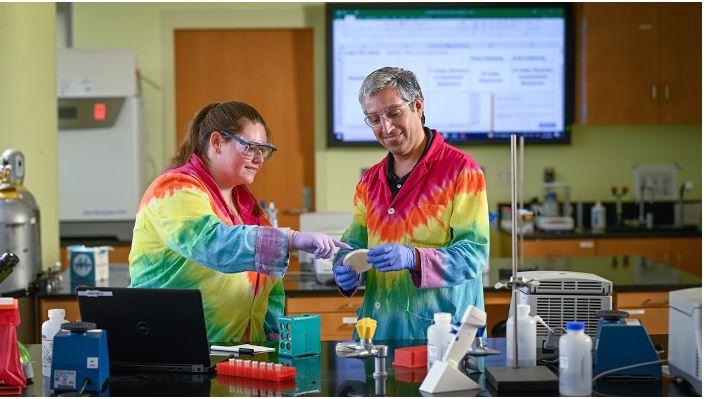Now Hiring: 2023-2024 Lab Post-bac Technician
Are you interested in gaining 11 months’ worth of laboratory experience to make yourself a more competitive candidate for graduate schools or job positions? Every year, the NCSU BIT Program hires a recent graduate to fill their post-baccalaureate laboratory technician position. This interdisciplinary role exposes the position holder to a wide range of scientific duties, all while increasing the appreciation for lab inner workings and teaching responsibilities.

The lab tech’s main responsibility is to provide a seamless experience for the students taking the core course, BIT 410/510. By running all experiments ahead of time, troubleshooting protocols, ensuring reagents are stocked, and acting as the tissue culture lead and equipment guru, everything is in place for the students who are enrolled in the core course to have a positive experience in the lab. In addition to lab research/maintenance, the post-bac also tests protocols for other courses and leads many outreach opportunities, including playing an active role in the Innovative Programs to Enhance Research Training (IPERT) program.
Madison Routh, the current holder of this position, started last June. She mentioned how seamless the transition was because of her previous BIT experiences and how welcoming the faculty was. “A lot of people really respect the post-bac position because it’s such an important position for the core lab,” she said. Her application process was simple, complete with an online application and an interview. Since the post-bac starts over the summer, there is a useful period for adjusting and learning during the smaller-enrollment summer offering of the core course prior to the full four sections of the core class starting in August.
Madison recommends this position to anyone graduating this year, including individuals who aren’t quite sure what scientific discipline they want to pursue. In a paragraph summary that she wrote about this position, she explains the variety of concepts and experiences she gained. Madison especially recommends the post-bac position for anyone who isn’t sure if a lab-heavy degree/career is right for them. This 11-month position might be the first opportunity for a student to spend enough time in the lab to feel accomplished and build confidence in their abilities.
“I strongly believe that this position has prepared me for my future endeavors in the biopharma industry. This position will give you technical and professional training that sets you apart. As the lab tech, you will take on many roles as a scientist and touch base in many different disciplines allowing you to explore the parts of science you thoroughly enjoy. The biotechnology program is an interdisciplinary environment that will allow you to explore the exciting and changing world of science while also forming professional relationships with those around you. I would highly recommend this position to anyone with an interest in science because there is something for everyone in the BIT program. The lab experience and professional development skills you gain in this position will fully prepare you for a future in academia, industry, and more!”
-Madison Routh
Even though she is going to be starting her Ph.D. in Pharmacology this fall, Madison’s favorite part of this position isn’t the prep or the pharmacology lab she helps with for BIT 410/510. She said, “I have two favorite things. The outreach programs and all of the relationships I’ve formed.” Even though the official title is “lab technician,” the post-bac does so much more than that. She also mentioned her least favorite part of the job are the smells, but if that’s the worst part, that’s even more of a reason to apply!
By applying for this position, you potentially have the opportunity to work with a large, friendly group of established scientists, as well as graduate and undergraduate students. To make for a seamless transition, it is important to have some knowledge of biotechnology experiments, as well as a willingness to learn new information and techniques. May 2023 graduates with the BIT minor would be thoroughly prepared, but any graduating student with a strong interest in science is encouraged to apply.
- Categories: